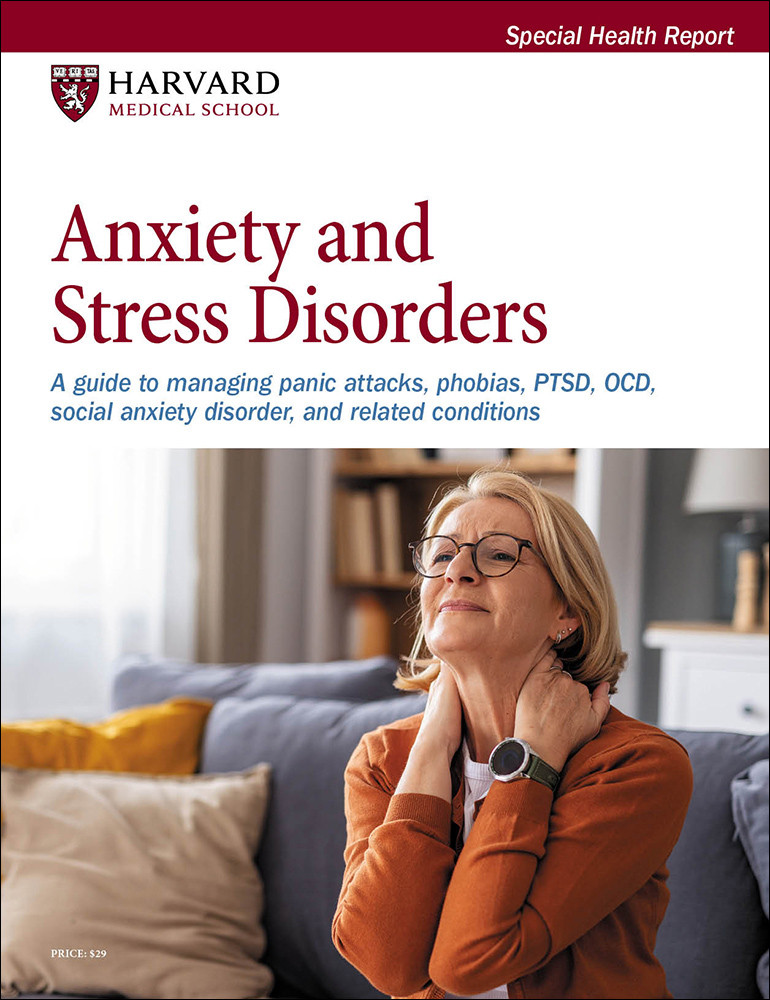Hidden hurdles to mental health care
Here's why you might not seek the help you need — and how to push past the barriers.
- Reviewed by Toni Golen, MD, Editor in Chief, Harvard Women's Health Watch; Editorial Advisory Board Member, Harvard Health Publishing; Contributor

One of the first questions clinical psychologist Natalie Dattilo asks patients is how much they believe psychotherapy will help them.
They come to her for such “talk therapy,” a cornerstone of treatment for people with mental health disorders. The approach delves into a person’s thoughts, feelings, and behaviors with a clinician to identify unhelpful patterns and develop effective coping mechanisms.
Many of Dattilo’s patients — most of whom are women — say they wouldn’t have come to her if they didn’t think psychotherapy could be effective. But there’s a catch: many of them also say they don’t believe it will work for them.
“A lot of people are on the fence,” says Dattilo, an instructor of psychology at Harvard Medical School. “That might be the greatest barrier to seeking mental health care. There’s a lot of skepticism, and some people also have the misconception that therapy is just talking, like you do with a friend. There’s still this idea that it’s a paid friendship.”
Internal and external obstacles
Nearly a quarter of American adults — more than 59 million people — live with a mental disorder such as anxiety, depression, obsessive-compulsive disorder, or post-traumatic stress disorder, among others, according to the National Institute of Mental Health. But more than half don’t get help for their problems, according to the American Psychiatric Association.
What stops them? The barriers are both internal and external, Dattilo says.
Internal barriers are the ones that people generate themselves — the emotions or excuses they make to avoid treatment even if they know they have a problem. These include guilt or internalized shame about having a mental health condition.
“Internal stigma says that maybe it’s okay for others to have these issues, but not for me,” Dattilo explains. “There’s also the idea that you can just tough it out on your own.”
External barriers to seeking mental health care are perhaps more transparent. They include cost or lack of access to treatment, which can mean living too far from a provider or difficulty finding one who can meet your individual needs.
“Most people would like to be able to use health insurance for this service, but a lot of therapists and providers don’t accept insurance,” she says. “Cost is access: if you can’t afford it, and insurance won’t pay for it, what are you supposed to do?”
Perhaps the most pervasive external barrier to seeking care is lingering societal stigma and discrimination surrounding mental health conditions. Some people, she says, may seem to accept others with these challenges, but still convey the attitude that seeking treatment is somehow shameful.
“For a long time, we didn’t talk about mental health conditions like depression and anxiety, and now we do,” Dattilo says. “But there’s still a stigma — not that you have anxiety, for instance, but that you take medication or get therapy. I do think we’ve come a long way in eliminating stigma in the past few years, but we still have a long way to go.”
Strategies to turn the corner
If you’re struggling with seeking mental health care, Dattilo offers these suggestions for pushing past some of the obstacles.
Investigate less-expensive options. Online and self-directed mental health and therapy programs offer another pathway. “Studies show they’re very effective, they’re just a different type of treatment,” she says. “It’s useful to know what different types of therapies are out there, what each is designed to do, and find the best fit for you.”
Zap your inner voice. Listen for “should statements” in your thoughts, such as “I shouldn’t need help — what’s wrong with me that I do?” or “I should be stronger than this.” Replace these with “would statements,” such as “It would be awesome if I didn’t need this support, but I’m struggling right now and I do, so I’m going to commit to it and do the work.”
“It’s incredibly useful for acknowledging and allowing the truth, which is way better than denying and shaming yourself,” Dattilo says. “Feeling guilty about taking care of your mental health can easily undermine your effort to feel better.”
This article is brought to you by HarvardHealthOnline+, the trusted subscription service from Harvard Medical School. Subscribers enjoy unlimited access to our entire website, including exclusive content, tools, and features available only to members. If you're already a subscriber, you can access your library here.
Image: © Fiordaliso/Getty Images
About the Author

Maureen Salamon, Executive Editor, Harvard Women's Health Watch
About the Reviewer

Toni Golen, MD, Editor in Chief, Harvard Women's Health Watch; Editorial Advisory Board Member, Harvard Health Publishing; Contributor
Disclaimer:
As a service to our readers, Harvard Health Publishing provides access to our library of archived content. Please note the date of last review or update on all articles.
No content on this site, regardless of date, should ever be used as a substitute for direct medical advice from your doctor or other qualified clinician.
















